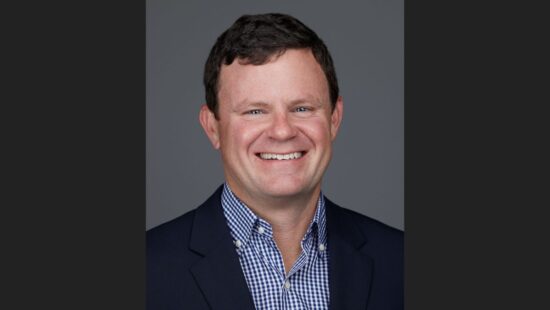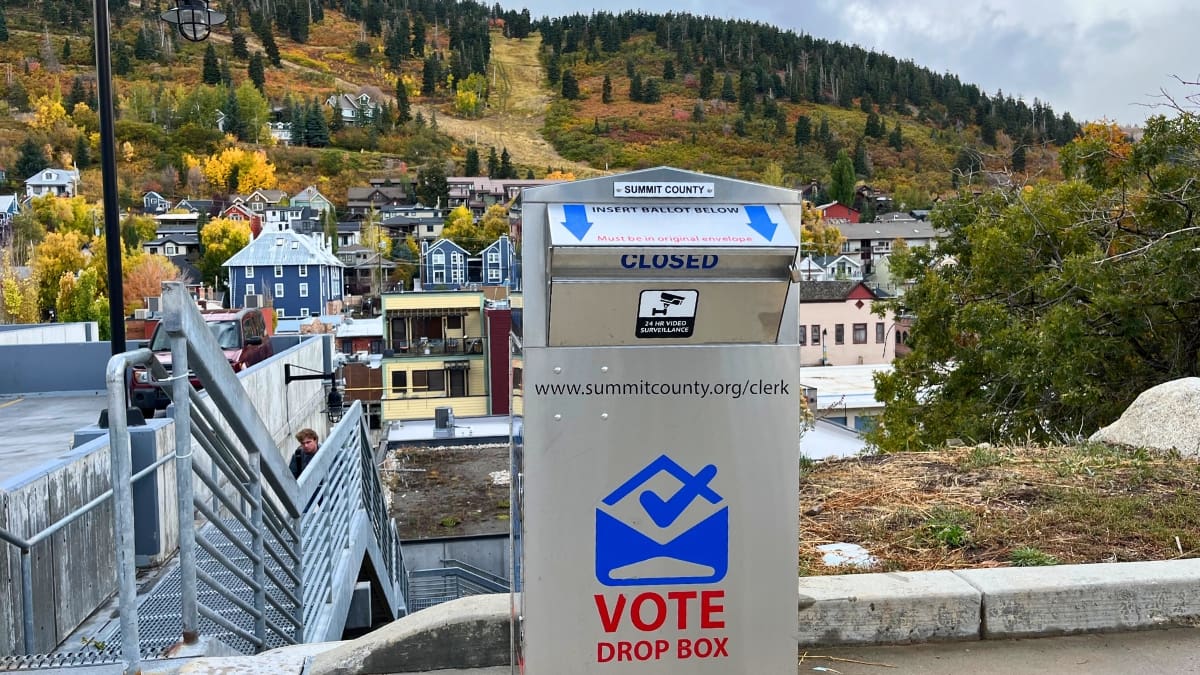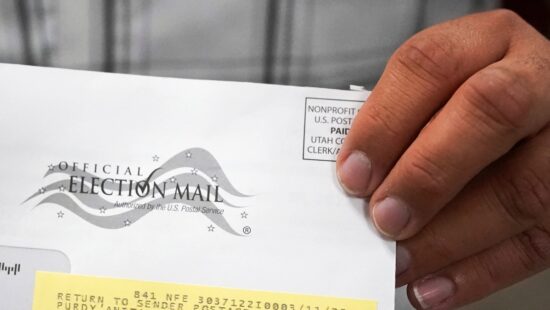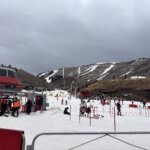Politics
‘Utah needs you’: National election commission urges Utahns to volunteer as poll workers

Election workers process ballots at the Davis County Administrative Building in Farmington on Election Day, Tuesday, Nov. 5, 2024. Photo: Spenser Heaps for Utah News Dispatch
The U.S. Election Assistance Commission — an independent, bipartisan commission charged with ensuring secure, accurate and accessible elections — is launching a national effort to recruit poll workers, including in Utah.
“Utah needs you,” Commissioner Donald Palmer said in an interview with Utah News Dispatch on Friday.
Tuesday — which is also Utah’s municipal primary — is National Poll Worker Recruitment Day, when the U.S. Election Assistance Commission kicks off a nationwide effort to encourage more people to volunteer at their local county clerks office and sign up to be election workers ahead of the November general election.
“Where there’s a primary, there’s always going to be a general (election),” Palmer quipped, saying the aim of scheduling National Poll Worker Recruitment Day on the same day of municipal primaries is to recruit more poll workers ahead of the 2025 November election, when voters typically turn out in higher numbers.
By raising awareness on a day when Utahns are thinking about their local elections, Palmer said he hopes more Utahns will consider being a part of the process this fall.
Across the nation, clerks are seeing a “dramatic decrease in the number of poll workers available,” Palmer said, noting that for the 2024 presidential election, 772,000 Americans served as poll workers, according to the 2024 Election Administration and Voting Survey Report. That’s down from what’s typically been 1 million.
While it’s been getting incrementally easier to recruit election volunteers since 2020, recruitment efforts have trended easier since 2020, still about 48% of clerks’ elections jurisdictions across the nation reported it’s either “very difficult” or “somewhat difficult” to find poll workers, according to that survey. Of that 48%, 14.3% said it’s “very difficult” while 33.6% said it’s “somewhat difficult.”
While Utah is not facing a dire poll worker shortage, Palmer said he’s still encouraging Utahns to volunteer, noting that what he hears most from Utah clerks is a need to help process by-mail ballots since the vast majority of Utah voters use the state’s vote-by-mail system.
He also said some counties are in more need than others — noting that rural areas with smaller populations often face more challenges recruiting poll workers.
In Utah during the 2024 November election, 104,350 people cast ballots in person on Election Day and 36,381 people voted early in person, while about 1.3 million by-mail ballots were cast and counted, according to the national survey.
By comparison, Utah only reported 1,110 total poll workers for that election.
That survey also showed that in 2025, about 40% of Utah’s poll workers were new recruits.
Palmer said that shows there’s been “a lot of turnover” and “a need for poll workers” in Utah — demonstrating that people are not volunteering anymore, likely because they’re getting older or are no longer able to.
“We have an aging population of poll workers,” Palmer said.
He noted that the survey found the vast majority of poll workers in 2024 were over the age of 40, with nearly 60% ages 61 and older. That includes 31.1% that were between the ages of 61 and 70, and 28.1% that were 71 and older.
“It really does (show) we need to start recruiting younger and middle-aged Americans to really fill the gap. Because at some point, they’re going to retire,” he said.
Palmer urged younger Utahns — who may not even be aware of the opportunity to serve their communities in this way — to consider being an election worker.
“I really encourage people to try (volunteering) at least one or two elections, because it will give you great insight, and the people that continue on year after year, some of these folks, they absolutely love it. They’re going to do it for the rest of their lives,” he said. “So we really do want young people and other Americans to see the voting process.”
He also said more people being involved in local election processes can help combat rising distrust in election security.
“It’s right on the ground. You can see how the voting process works,” he said. “You really do, as a poll worker, get to see the checks and balances within a polling place. You get to see the efforts that go into chain of custody and how we make sure the ballots equate to the number of people that have voted. And the care that’s taken with those ballots. … It really is the best place to understand how the voting process works.”
“There really does need to be replacement poll workers as we move to the future,” he said.
Written by Katie McKellar for Utah News Dispatch



















